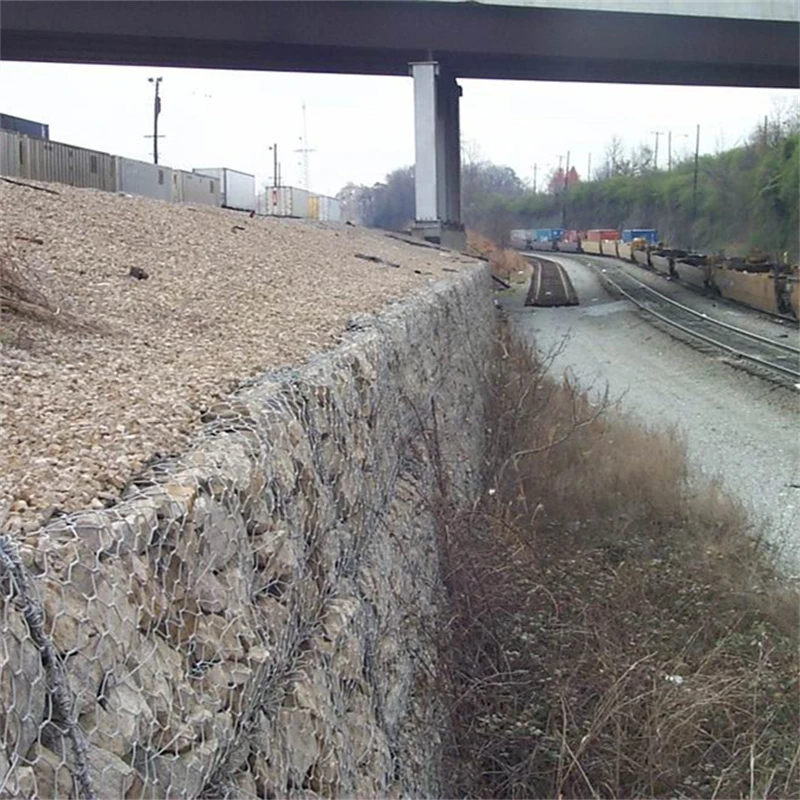Дек . 15, 2024 02:46 Back to list
Top Choices for Stones to Use in Gabion Wall Construction
Best Stones for Gabion Walls
Gabion walls have gained immense popularity in landscaping and engineering due to their aesthetic appeal, structural integrity, and environmental benefits. These walls, made of wire mesh cages filled with stones, are versatile structures that are commonly used for erosion control, landscaping features, and even noise barriers. Choosing the right type of stone for your gabion wall is crucial, as it impacts not only the wall's durability and strength but also its overall appearance. In this article, we will explore the best stones to use for gabion walls, taking into consideration their properties, availability, and visual appeal.
1. Granite
Granite is one of the most durable and sought-after stones for gabion walls. Known for its strength and resistance to weathering, granite can withstand harsh environmental conditions, making it an excellent choice for structural applications. Additionally, its range of colors and textures can enhance the aesthetic appeal of the wall. From light grey to deep black, the natural variation in granite pieces adds a unique character to gabion walls, making them a stunning feature in any landscape.
2. Limestone
Limestone is another popular choice for gabion walls. It's relatively easy to work with and comes in a variety of colors, including beige, cream, and even dark shades. Limestone’s softer nature compared to granite makes it easier to cut and shape, allowing for creative designs and arrangements within the gabion structure. It also blends beautifully with natural landscapes, giving your gabion wall a more organic look. However, it is important to note that limestone may not be as durable as granite, especially in highly acidic environments.
3. River Rock
best stones for gabion walls

River rock, characterized by its smooth, rounded surfaces, is perfect for those looking to create a more natural and rustic gabion wall. These stones, typically gathered from riverbeds, are aesthetically pleasing and provide excellent drainage properties. River rocks can be used alone or mixed with other stones to achieve a unique look. The variety of sizes and colors available makes river rock an attractive option for landscapes requiring a softer touch.
4. Basalt
Basalt, a volcanic rock, offers a robust option for gabion walls. Its dense composition makes it incredibly durable and suitable for high-stress applications. Basalt stones typically come in dark shades, which can add a dramatic flair to your landscape design. They are less commonly used than limestone or granite, which may add an element of uniqueness to your gabion wall. Additionally, basalt provides excellent stability, ensuring that your gabion structure remains secure over time.
5. Slate
Slate is known for its rich colors and unique textures, making it an aesthetically pleasing option for gabion walls. This metamorphic rock can be split into thin sheets, allowing for diverse applications and arrangements. The layered appearance of slate adds visual interest and depth to gabion walls. However, it is important to ensure that slate is durable enough for your specific application, as some varieties may be more fragile compared to others.
Conclusion
When choosing stones for gabion walls, it is essential to consider not only their aesthetic qualities but also their durability and functional properties. Granite, limestone, river rock, basalt, and slate are some of the best options available, each offering unique benefits and visual characteristics. Ultimately, the best stone for your gabion wall will depend on your specific project requirements, environmental conditions, and personal design preferences. By selecting the right stones, you can create a beautiful, durable gabion wall that enhances your outdoor space while providing long-lasting stability and environmental protection.
-
Visualizing Gabion 3D Integration in Urban Landscapes with Rendering
NewsJul.23,2025
-
The Design and Sustainability of Gabion Wire Mesh Panels
NewsJul.23,2025
-
The Acoustic Performance of Gabion Sound Barriers in Urban Environments
NewsJul.23,2025
-
Mastering the Installation of Galvanized Gabion Structures
NewsJul.23,2025
-
Gabion Boxes: Pioneering Sustainable Infrastructure Across the Globe
NewsJul.23,2025
-
Custom PVC Coated Gabion Boxes for Aesthetic Excellence
NewsJul.23,2025
-
Installation Tips for Gabion Wire Baskets in Erosion Control Projects
NewsJul.21,2025






